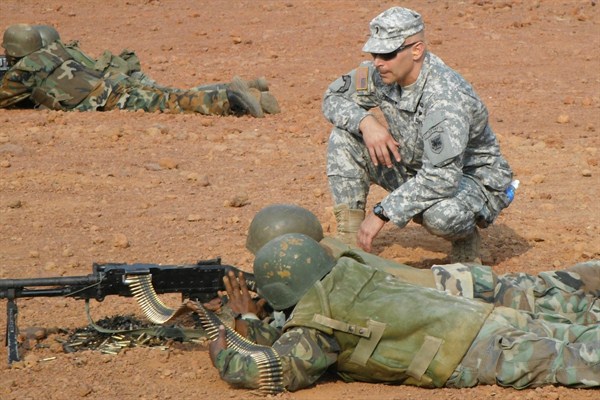As African heads of state gather in Washington this week for the U.S.-Africa Leaders Summit, the continent looks relatively peaceful, at least in comparison to other regions. Even the agenda of the summit, which according to its website “will advance the Administration’s focus on trade and investment in Africa,” reflects Africa’s relative stability. Though peace and security issues are admittedly included in the agenda, they seem more like a footnote than a priority.
It is irrefutable that conflict in Africa has declined significantly over the past two decades and that African economies and the continent’s burgeoning middle classes represent a lucrative market for U.S. companies and investors. And yet, the recognition of Africa’s overall security, political and economic progress shouldn’t obscure its ongoing challenges. One that casts a particularly long shadow has also plagued large swaths of the Middle East and South Asia: violent Islamist extremism.
In recent weeks, media outlets, including this publication and The New York Times have noted the shift in U.S. counterterrorism strategy from direct action, such as drone strikes and capture-and-kill raids, to indirect action—namely training, equipping and advising partner or indigenous troops, with a limited American combat role.

